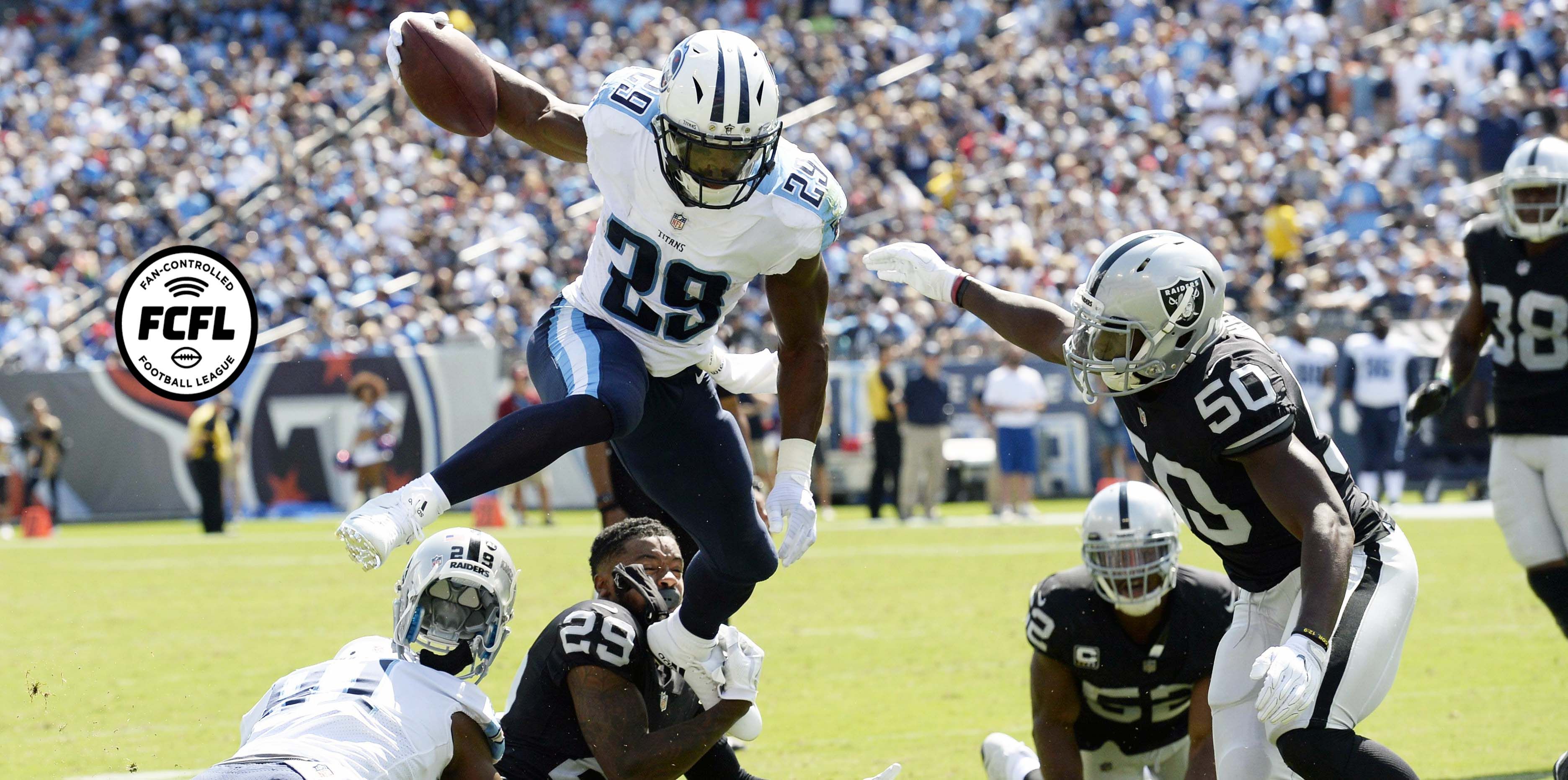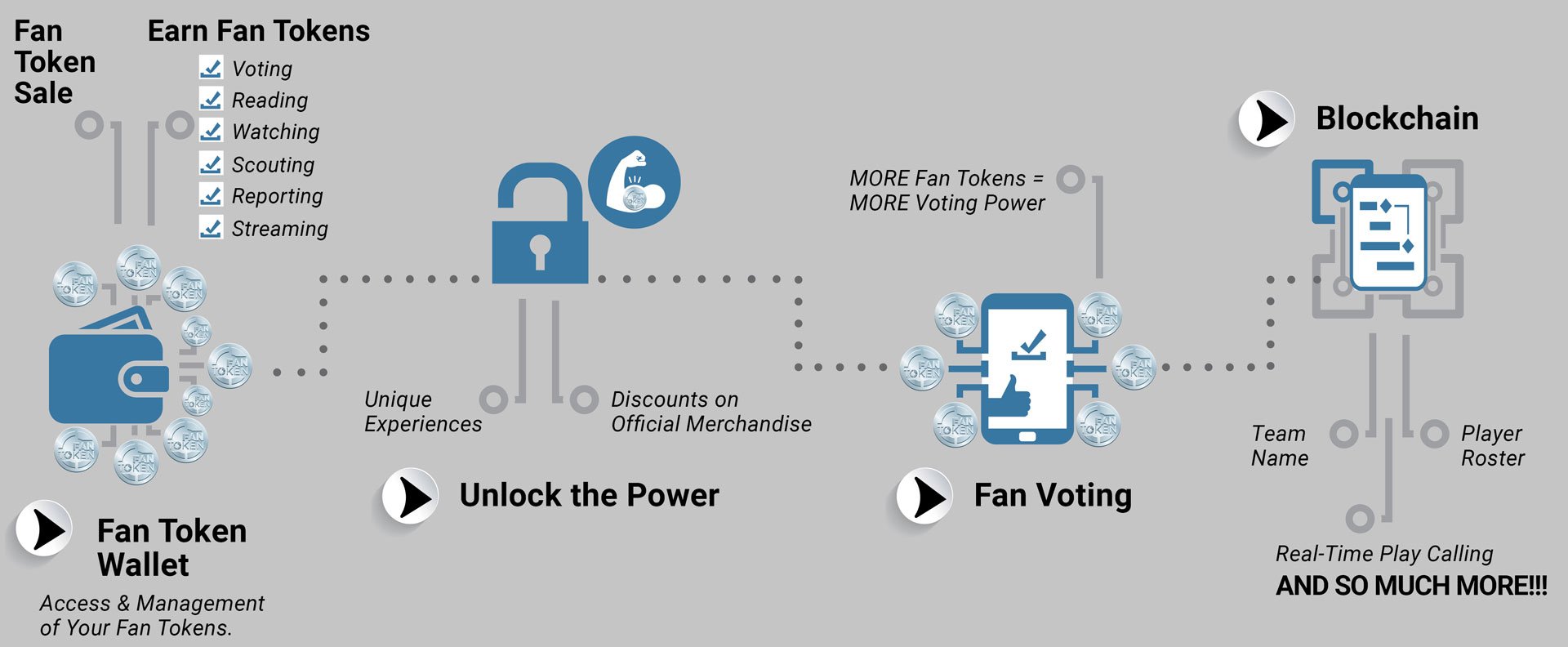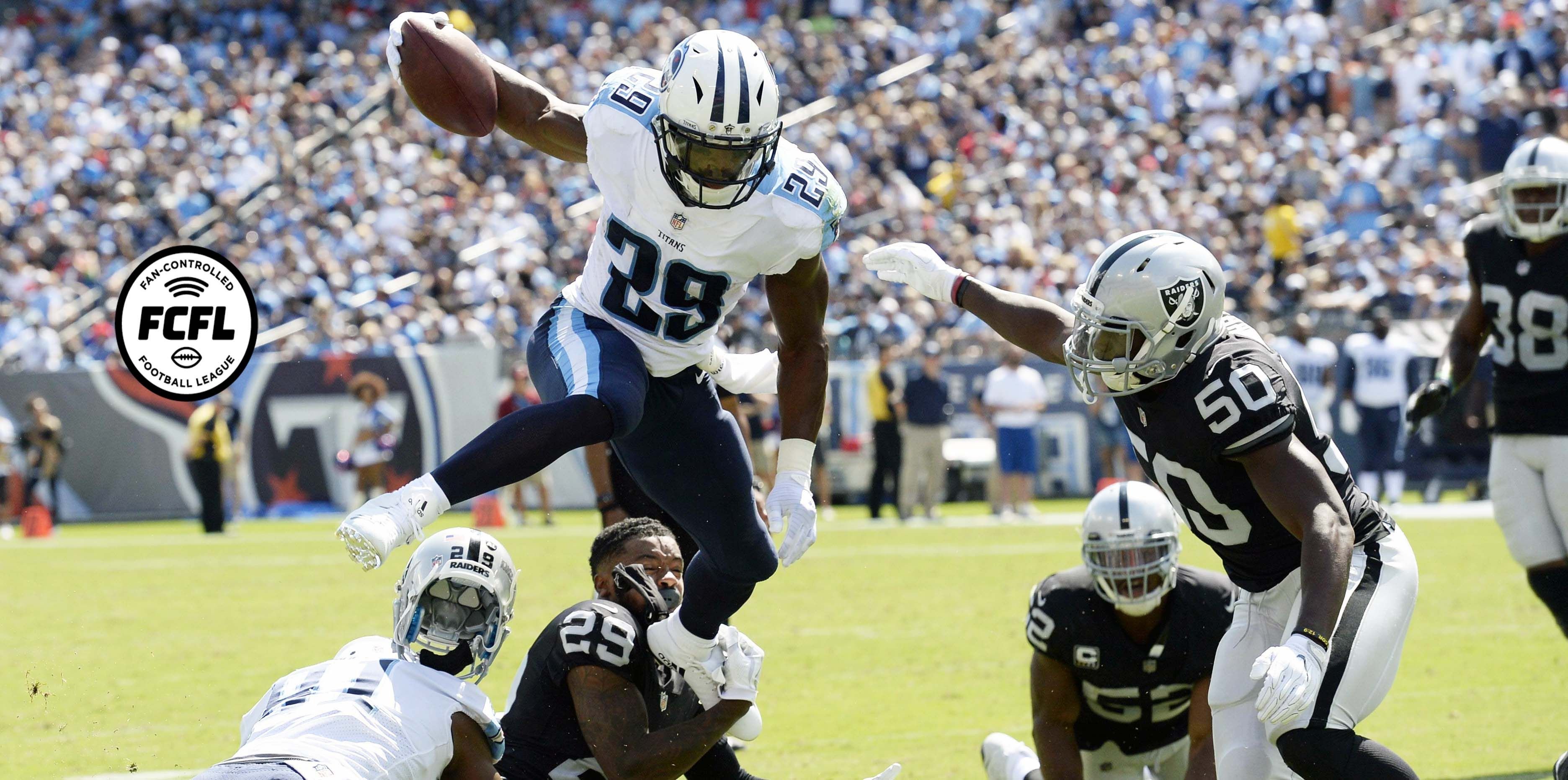How Blockchain Will Revolutionize Sports Consumption
How Blockchain Will Revolutionize Sports Consumption

By
![]() Sohrob Farudi
•
6 min read
Sohrob Farudi
•
6 min read
July 31, 2018
2018—what a thrilling, engaging, often overwhelming time to be alive, especially for the sports fan.
The sheer volume of content to consume and forums to discuss said content and forums to discuss the discussion of said content dwarfs any sort of fandom activity that preceded it.
The modern sports fanatic is employed full-time in their fanaticism. Blink, and you will miss some bit of action.
There is perhaps a no better example of this than the recent Ringer-induced Bryan Colangelo fiasco – a night that will live in infamy for NBA Twitter.
If you went to sleep that evening before 10 PM (like, say, a reasonable adult might do), you missed a flurry of activity that, while captured on SportsCenter and countless blogs to follow, could never be fully understood unless you were there, reading the breaking news when the article was first published, watching Reddit unearth sketchy old tweets, following along as modern NBA luminaries such as Joel Embiid and Danny Ainge tossed copious shade on Twitter.
We were witnessing the unfathomable professional collapse of a man who came from one of the true power families in basketball history—who had previously won the NBA Executive of the Year award—and the first two acts of this Shakespearean drama played out in front of our very eyes, fans and GMs and players alike.
While it ultimately took a couple weeks to unfold, the third act was plain as day: Colangelo, coming off a season many viewed as the start of a new NBA dynasty, the culmination of “The Process,” with a real chance at landing Lebron James in free agency, was done. There was simply no recovering from Burnergate.
This whole episode, completely a product of the modern sports consumption mechanism (imagine explaining Burnergate to anyone a decade ago?), could serve as a shining example of why the NBA is running laps around other professional sports leagues in 2018: its relationship with its digital fans (and the players’ recognition of the value of this relationship) is simply unparalleled.
And this is where the rest of the sports world must be heading. With an army of millions of devoted fans, smartphones at the ready, desperately seeking increased access, increased engagement, there is a MASSIVE opportunity to leverage decentralized passion and energy into a transcendent product. Even the NBA, quite frankly, is just scratching the surface.
Aside from smartphone access and the rise of fantasy sports (both of which are long-cemented by now as powerhouses in the pro sports industry), two recent developments should soon shake the core of what we know of the fan experience moving forward: the legalization of sports betting in the United States and the advent and spread of technology such as blockchain in sports.
The modern sports fanatic is employed full-time in their fanaticism. Blink, and you will miss some bit of action.
Sohrob Farudi, CEO & Co-Founder of FCFL
Fantasy sports (which reached a new level of power in the smartphone era, like Barry Bonds dipping into his first batch of the cream and the clear) was the first major step toward true fan engagement since the proliferation of video games in the 1980s.
For the first time, fans felt a true sense of ownership over an athlete’s individual performance in a way that could yield tangible results for that fan, even if that result is simply the ability to talk sh*t to one’s friends. Everyone thinks they are smarter than the GM and front office of their favorite team: fantasy sports provided a (very light-touch) opportunity to prove it.
But really, why does a team need such a front office construct at all? The scientific community has all but confirmed the idea that hive mind and “wisdom of the crowd” is almost always the superior approach to relying on one person’s assessment, however wise or informed they may be.
This is why the ant is undoubtedly the king of the natural world—one entity made up of millions of individuals operating in collective unison. To borrow from the Abstract of a recent study in Nature Magazine:
“Once considered provocative, the notion that the wisdom of the crowd is superior to any individual has become itself a piece of crowd wisdom, leading to speculation that online voting may soon put credentialed experts out of business. Recent applications include political and economic forecasting, evaluating nuclear safety, public policy, the quality of chemical probes, and possible responses to a restless volcano.”
I think it is safe to say that if crowd wisdom has advanced applications in nuclear safety and volcano activity, it has a real opportunity to take hold in something as relatively benign as building the roster of a sports team or calling plays during a game.
And further, unlike other potential applications, the group here lending their thoughts (aka sports fans) DESPERATELY seeks an outlet to engage; so much so that they would likely be willing to pay for their own services.
The thought of an unpaid intern is almost laughable in the face of a fan willing to pay for the chance to do work, and yet that is a realistic opportunity for sports franchises in the immediate future.
This could be done rather simply through just a standard voting process – should the pitcher throw a fastball or a slider? – and, in fact, it has been done before. As far back as 1951, legendary MLB owner Bill Veeck created the idea of “fansourcing,” wherein the crowd at the Athletics game was given signs of “Yes/No” to essentially vote on strategic decisions.
Of course, smartphone apps make this process a bit more scientific… and a bit more hidden from the opponent.
But if the democratization of strategic decisions is to truly succeed, especially with the dawn of a new era of legalized sports gambling (where all this new money will bring with it an enhanced level of scrutiny), simple voting mechanisms will not suffice.
There are too many careers at stake: too many athletes who will rely on the outcomes of fan voting for their livelihood, too many corporations engrossed in the coming multibillion-dollar industry. Basic polling on a website or app is not enough. Transparency will become the most influential of all commodities. There can be no room for ambiguity.
And this is where blockchain comes in. If we are to reach a new level of sports fan engagement through the democratization of strategic decisions, to open up the world of professional sports to the “wisdom of the crowd” (and reap the financial benefits along the way), it is absolutely crucial that all parties involved remove any doubt from that process.
Blockchain technology, wherein all votes are essentially tied to previous votes on a publicly available ledger, is the simplest form of transparency that exists in the world today. With sufficient decentralization, it is a hack-proof system. And for fans and players alike to accept this hive mind approach to strategic decision making, hack-proof is absolutely crucial.

Of course, there is more to the fan experience than the literal action on the field and the interactive gambling that accompanies it.
What do die-hard fans want most for Christmas (or whichever celebratory holiday warrants gift giving)? How about a game-used jersey signed by their favorite player? Or perhaps tickets to opening day?
The blockchain is about to revolutionize these industries—ticketing and memorabilia—through a granularly-tracked process of procurement and distribution.
Sports memorabilia is itself a billion-dollar industry; one where authenticity is the most prized possession. Fans are not paying for just any jersey: they want that jersey from the game. They want to own a piece of history—the dirt, the grass stains, the… perspiration? (ok, memorabilia can get a little weird if you think about it).
Fans desperately care about these items, so much so that a viable black market exists to drive their prices. Who can forget the frantic manhunt that ensued following the theft of Tom Brady’s jersey from Super Bowl XLIX? That single article of clothing yielded cover stories on newspapers and an international investigation by the FBI.
You’d think by now, we would have a mature market for such expensive gear, and yet, ask Eli Manning and the New York Giants about authenticity. On second thought, better not. That trial is still ongoing.
If an NFL star is directly involved in efforts to circumvent authenticity, just imagine how much fraud exists across the scope of memorabilia trade?
Blockchain, however, presents a technological solution to this problem, where game-used items can be verifiably tracked from the field to the auctioneer to the mancave (or wherever it is Eli Manning’s sweat-stained jerseys are sold and housed).
Each step in the lifecycle of that dirty, sweaty jersey now clearly outlined via a digital ledger, holding all parties involved in the transaction directly accountable.

Like the world of memorabilia, the event ticketing industry will surely benefit from blockchain’s powers of transparency. Counterfeit has long been a thorn in the event industry, as has a murky resale market (secondary ticketing accounted for over $15 BILLION in global revenue in 2017).
Blockchain protocols could directly tie a seat in an arena to the initial purchaser, creating a unique ticket ID and helping sports franchises and stadiums more clearly understand their customer. This use case extends well beyond just sports fans, with music concerts and theater being major opportunities.
There are already several prominent ventures seeking to bring blockchain to the ticket procurement industry, such as Aventus, Upgraded, and Blocktix (among other players). Given how many tickets are already housed on smartphone apps like SeatGeek or StubHub, blockchain-based ticket distribution is sure to dominate in the very near future.
It’s an exciting time to be a sports fan—even if you miss the occasional late-night Twitter meltdown. The rise of blockchain will help ensure a viable transition to a brave new digital world.

This piece was written by Sohrob Farudi in collaboration with Tom Segal.
Sohrob Farudi is the CEO & Co-Founder of Fan Controlled Football, the first ever fan-controlled professional sports league, built on blockchain technology and allowing fans to act as part-coach, part-GM, and part-owner. You can connect with him here or here.
Learn more about the application of emerging technologies like blockchain in sports at our annual innovation conference, Hashtag Sports, designed for digital decision-makers.